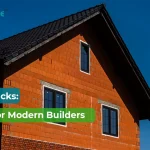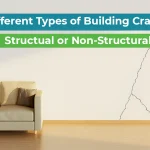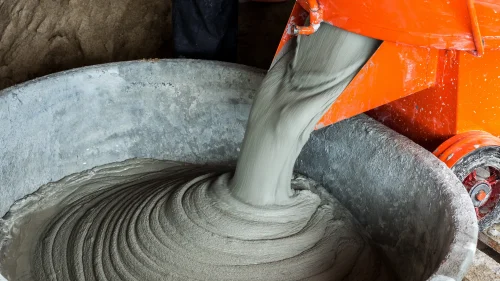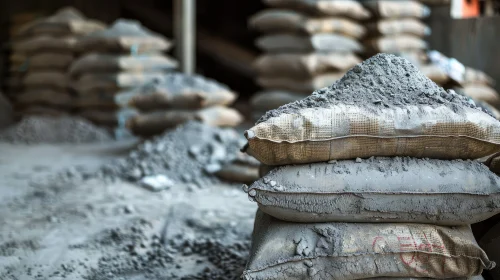
Why Porotherm Bricks Are a Smart Choice for Your Home
April 19, 2025
Types of Building Cracks: What They Mean and How to Fix Them
April 21, 2025Planning to build a house?
It’s not just about putting up walls or picking paint colors—everything starts with the basics. And cement is one of the most important parts. It’s the stuff that holds your entire home together.
But with so many types of cement out there and every brand claiming to be the best, it can get really confusing. Which is the best cement for house construction? What should you actually look for?
Don’t worry, we’ve made it easy for you. In this guide, we’ll explain the different types of cement, how to choose the right one based on where you live and what you’re building, and some helpful tips that can save you time, money, and future headaches.
Table of contents
- Types of Cement Used in House Construction
- How to Choose the Right Cement for Your House
- Which Cement Is Best for Concrete?
- Which Cement Is Best for House Construction?
- Tips for Using Cement in Construction
- Final Thoughts: The Right Cement Saves You Lakhs Later
- Enhancing Home Durability with Quality Fixtures
- FAQs:
Types of Cement Used in House Construction

There are over a dozen types of cement available, but only a few are commonly used in residential construction. Each has its specific use cases and performance traits. Let’s explore them:
Ordinary Portland Cement (OPC)
Grades Available: 33, 43, and 53
Best For: RCC (Reinforced Cement Concrete) structures, columns, beams, slabs
- OPC is the most widely used house cement due to its high strength and early setting time.
- Grade 53 is typically considered the best cement for house foundations and structural work, especially in high-rise buildings or fast-track projects.
Portland Pozzolana Cement (PPC)
Best For: Masonry, plastering, internal and external finishing
- Made by blending pozzolanic materials (like fly ash), PPC has better workability and lower heat of hydration.
- It’s ideal for non-structural work and areas exposed to water and chemicals.
Portland Slag Cement (PSC)
Best For: Coastal regions, water tanks, sewage systems
- Contains granulated blast furnace slag, making it highly resistant to sulfate and chloride attacks.
- Excellent for areas with high salinity or aggressive groundwater.
White Cement
Best For: Decorative works, tile fixing, and flooring
- Used where aesthetics matter. It’s not a structural cement but adds beauty and brightness to surfaces.
Sulfate-Resisting Cement
Best For: Foundations in sulfate-rich soils
Specially formulated to withstand chemical attacks, especially in industrial zones or coastal belts.
How to Choose the Right Cement for Your House

Selecting the best cement for house construction requires careful evaluation of your location, budget, and structure type. Here’s a checklist to help you make the right choice:
Understand the Functional Requirement
Ask yourself: Is the cement going to be used for structural work (like columns) or for plastering and finishing?
- For structural elements: Use OPC 53 grade or PSC.
- For plastering or masonry: PPC is a better choice due to its smoother finish and reduced shrinkage cracks.
Check Compatibility with Local Conditions
- If your site has high groundwater or is near the coastline, opt for PSC or sulfate-resisting cement.
- For dry zones or hot climates, PPC helps retain moisture and avoid cracks due to its slow hydration.
Prioritize ISI Certification
Always ensure the cement brand is ISI marked:
- OPC: IS 269 (33 Grade), IS 8112 (43 Grade), IS 12269 (53 Grade)
- PPC: IS 1489
- PSC: IS 455
This ensures quality, consistency, and performance.
Compare Brands but Don’t Blindly Follow Ads
Popular Indian brands like Ultratech, ACC, Ambuja, Shree Cement, Dalmia, and Birla offer high-quality products. However, don’t be swayed just by marketing. Always ask for a lab test report or conduct a cube test at your site for verification.
Consider Storage and Freshness
Cement should ideally be used within 90 days of manufacturing. A bag that feels lumpy or hard is not fresh and should be avoided, no matter how reputable the brand is.
Which Cement Is Best for Concrete?
If you’re pouring foundations, beams, slabs, or columns, your primary concern should be compressive strength and durability. So, which cement is best for concrete?
- OPC 53 Grade: Offers early strength and quick setting, suitable for high-load structures.
- PSC: Ideal where long-term strength and corrosion resistance are critical.
Pro Tip: For house construction in regions with aggressive soil or groundwater conditions, a blend of OPC and slag or pozzolana (as found in PSC or PPC) offers a balanced approach.
Which Cement Is Best for House Construction?
The answer lies in multi-zone usage:
So, there’s no “one size fits all.” Instead, the best cement for house depends on the job at hand.
Tips for Using Cement in Construction
Now that you know how to choose the right cement, here are smart tips to ensure it performs optimally on-site:
Test Before You Trust
Always conduct:
- Fineness test (sieve analysis)
- Consistency test (vicat apparatus)
- Setting time test
These can be done easily with local labs or your contractor.
Store Properly
- Keep cement bags in a dry, covered area raised at least 6 inches from the floor.
- Stack in a cross pattern to prevent lumping.
- Never store near water sources or open windows.
Mix Smartly
- Use a 1:2:4 mix ratio for concrete (cement: sand: aggregate) in general works.
- Maintain w/c (water-cement) ratio of 0.4–0.6 for optimal strength.
- Overwatering leads to segregation and weakens the final product.
Cure Effectively
- Curing is non-negotiable. It keeps cement hydrated and cracks away.
- Cure concrete for a minimum of 7 days and ideally up to 14 days, especially in hot climates.
Avoid Re-bagged Cement
Sometimes rejected cement is repackaged and sold at discounts. Always inspect the stitching, print clarity, and manufacturing date.
Final Thoughts: The Right Cement Saves You Lakhs Later
Choosing the best cement for house isn’t about picking the most expensive bag—it’s about selecting the right type for each part of your home. From foundation strength to wall finishing, cement impacts both safety and aesthetics. By combining the right knowledge with expert tips, you’ll build a home that lasts generations.
And remember: the best cement for house isn’t just strong—it’s fresh, certified, correctly used, and suited to your region.
Enhancing Home Durability with Quality Fixtures
Cement is key, but it’s not the only thing that matters when building a home. Windows and doors also play a big role in comfort, noise, and energy savings. The right choices now can make your home better for years to come.
That’s where The Green Fortune comes in. We specialize in top-quality uPVC windows and doors that are built to last, low on maintenance, and high on performance—perfect if you're aiming for a home that’s both solid and smart.
FAQs:
Q1. Can I use one type of cement for the entire house?
You can technically use a single type of cement throughout your house, but it's not recommended for optimal performance. Different parts of a house have different stress levels, moisture exposure, and aesthetic needs.
Q2. Is OPC better than PPC?
OPC (Ordinary Portland Cement) gains strength quickly and is ideal for structural work like columns and slabs. PPC (Portland Pozzolana Cement), on the other hand, has better workability, resists cracks, and is more suitable for plastering and non-load-bearing walls.
Q3. Which cement is best for house construction overall? If I live near the sea?
If you live in a coastal region, Portland Slag Cement (PSC) is highly recommended. It provides excellent resistance against chloride and sulfate attacks caused by salty air and groundwater. Using PSC in such environments increases the lifespan of the concrete and prevents corrosion of steel reinforcement.

